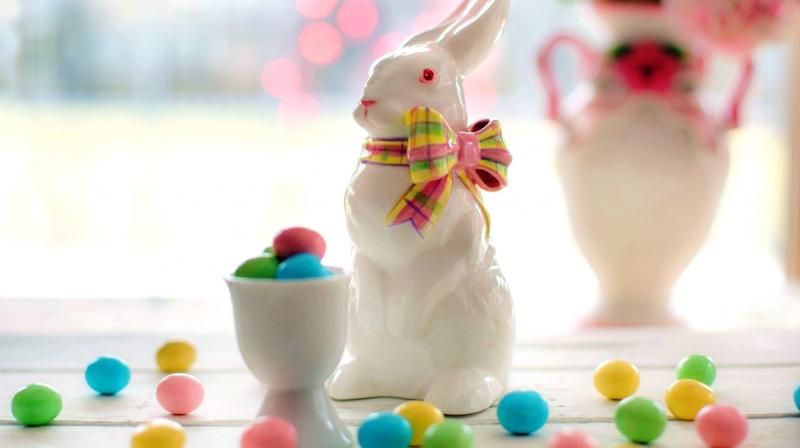Aim for more festivity, less environmental footprint this Easter

All celebrations and festivities result in large spikes in overall waste production. Considerable amounts of food, unusual packaging and products enter our homes, leaving us with overflowing bins, less time to worry about recycling and what happens to it when it disappears on bin night.
Although the jewel-coloured foil and plastic wrappers on Easter eggs may look pretty, their impact on the environment when they ends up in landfill, or when they contaminate our recycling, is not. Nor is the amount of energy and resources required to produce it all in the first place.
Just like at Christmas, many people are literally buying into the pressure to go “all out” at Easter. It creating a culture of excess and over-indulgence in our bid to celebrate with our families and create happy memories for our kids.
The star is, of course, chocolate. Consumption over the Easter weekend historically accounts for a large chunk of the national annual consumption of many countries, including Australia which spent AUD 210 million on chocolate last Easter.
What’s more, supermarket aisles overflow with disposable baskets, small plastic eggs, fluffy chicks and bunnies and toys meant to break after one use. You can start to see how the waste will add up over the long weekend. If this waste ends up in the wrong bin, our recycling crisis will be exacerbated this Easter.
So what can you do to reduce your footprint this Easter without reducing the fun and festivity? The first thing is to consider the “waste hierarchy” and do what you can to avoid waste from occurring in the first place.
Refuse
As much as you can, refuse to buy into the commercialised paraphernalia and reuse, repurpose or make your own decorations, Easter baskets and even chocolate eggs and hot cross buns.
Reduce
When buying festive food, try to reduce the amount of packaging. You’re paying a premium for fancier packaging and don’t be too “egg-sessive”! It’s also important to plan ahead to reduce unnecessary food waste. Planning meals in advance, getting portion sizes right and making use of the leftovers can all reduce waste and save you money
Reuse
Look for products and packaging made from recycled material and buy decorations second-hand from charity shops. Opting for reusable alternatives over disposable single-use products can greatly reduce your waste footprint.
Repurpose
Be creative with unwanted packaging. Repurpose leftover boxes, containers or fruit punnets to package eggs or gifts and moulded plastic packaging to make your own chocolate gifts. And, if you’re embellishing real egg shells (with natural dyes of course!), make sure the egg goes into an omelette or frittata, not down the drain.
Recycle (as a last resort)
Despite our best efforts, most of us will still end up with some waste. Holidays may be a great time to sit back and unwind but recycling rules don’t change over a long weekend.
*The article was originally published by The Conversation Global Perspectives.

